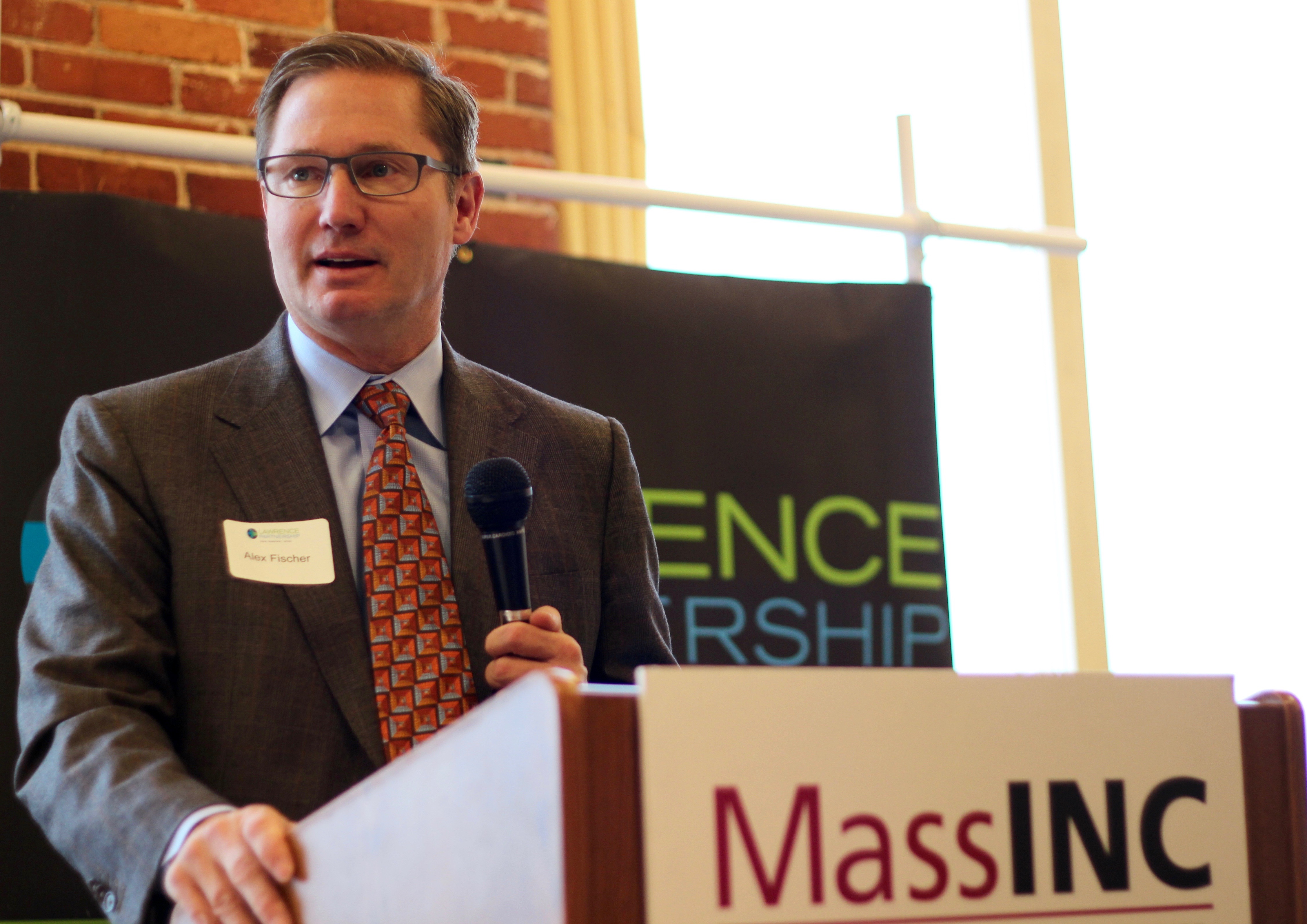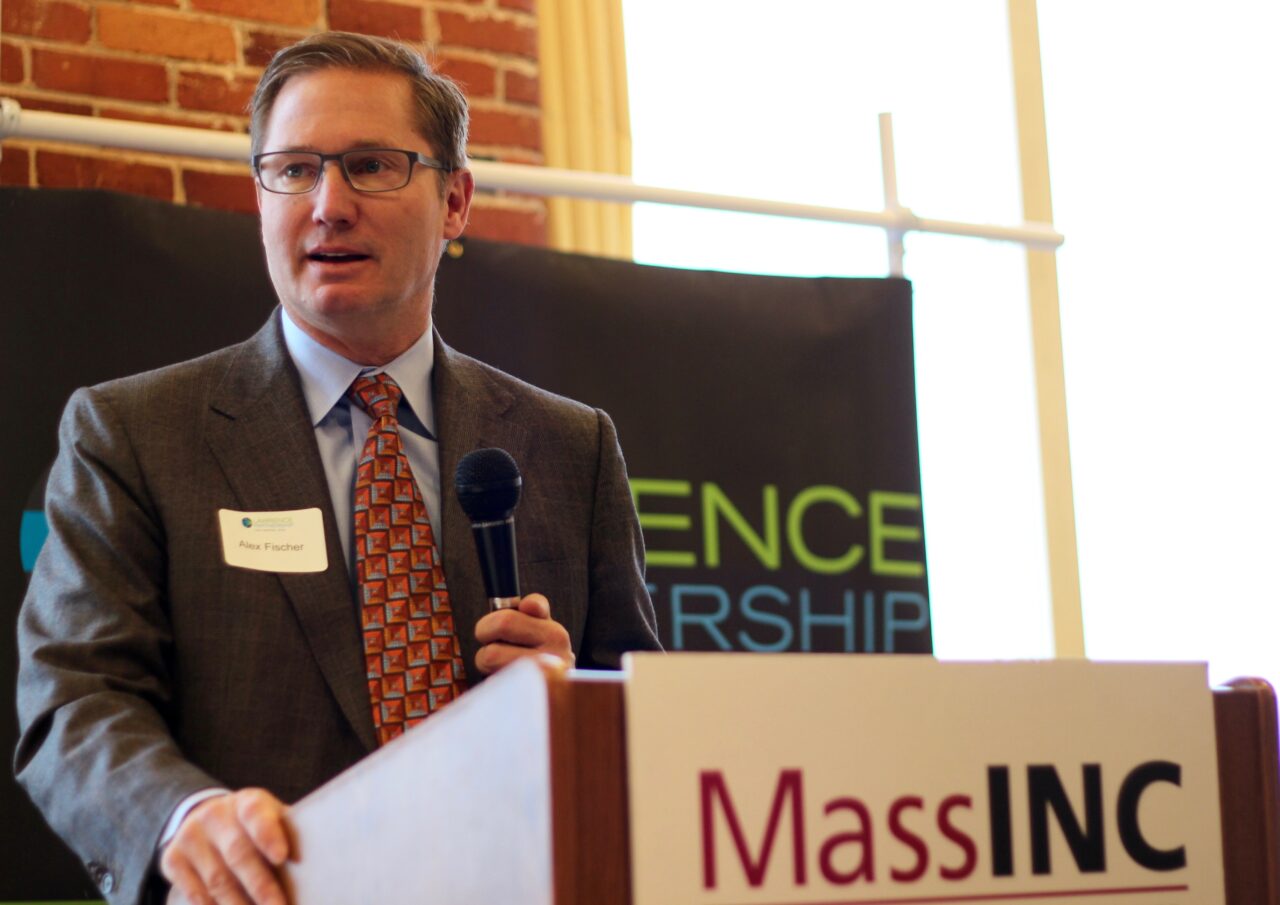MassINC released new research on the role of private nonprofit economic development organizations in Gateway City growth and renewal at event held in Lawrence on December 8th. Co Hosted with the Lawrence Partnership and the Executive Office of Housing and Economic Development, the forum brought together business and economic development leaders from across the state.

Alex Fischer, president and CEO of the Columbus Partnership, shared 10 lessons-learned.
- Leave yourself at the door and bring community interest to the table. Businesses participating in private nonprofit economic development must focus on community priorities first and foremost. Alex noted that this may be easier to achieve when they are composed of founding partners.
- Be curious (:03). The Columbus Partnership takes leaders on retreat every year. Visiting with faculty at the Kennedy School of Government and touring other communities. Alex tied curiosity as an organizational principle to one on of the founding CEOs, who has written on leadership, emphasizing that curiosity is one of the chief traits of effective CEOs.
- Collaboration (1:45). The partnership is painstakingly collaborative. They work to build buy-in for their initiatives, but they make clear that they are a private sector “CEOs only” organization.
- Regionalism (3:27). The partnership has a regional lens. Their employers don’t care where employees live and employees don’t care about which side of a municipal boundary jobs are located. But they work within a relatively tight urban core and they do invest resources and energy in downtown placemaking that gives vitality to their entire region.
- Focus (5:01). They strive to remember that “The main thing, is the main thing, is the main thing.” If they choose their focus correctly, it is a galvanizing force.
- Be bold (6:06). CEOs want to work on big aspirational ideas. They recognize that not every idea will succeed, but they also appreciate that communities succeed because they aren’t afraid to pursue big initiatives.
- Own it and measure it (6:57). The partnership relentlessly collects statistics to see where they’re winning and losing.
- Practice patience (7:53). The partners provide steady leadership and recognize that for many of their initiatives to succeed they need to build buy-in and that takes time. At the outset, they “go slow to go fast.”
- Transgenerational leadership (9:02). Having built an organization with a successful leadership culture, the partnership is focused on how they pass down these principles and practices to the next generation of Columbus leaders. They haven’t figured this out yet, but they’re very focused on it now.
- The action is in the cities (10:21). Business leaders appreciate that with all of the dysfunction in government today, the places where they can get things done is in cities (that have effective state partnerships).
In Q&A Alex provided many other provocative ideas, one of the most interesting was his insight on selecting a director for a private nonprofit economic development organization. He noted that “the right bedside manner” is someone who can relate to CEOs, but also understands politics and how government operates. He also shared that he is paid exceptionally well and treated by the CEOs as a peer. As an example of the kind of influence the partnership members work to create for their director, he noted that he has been made a trustee of the Ohio State University and has been invited by the board of a major corporation in the community to participate in the hiring process for a new CEO.
To read more about the Columbus Partnership, follow this link to a Harvard Business School Case Study.
